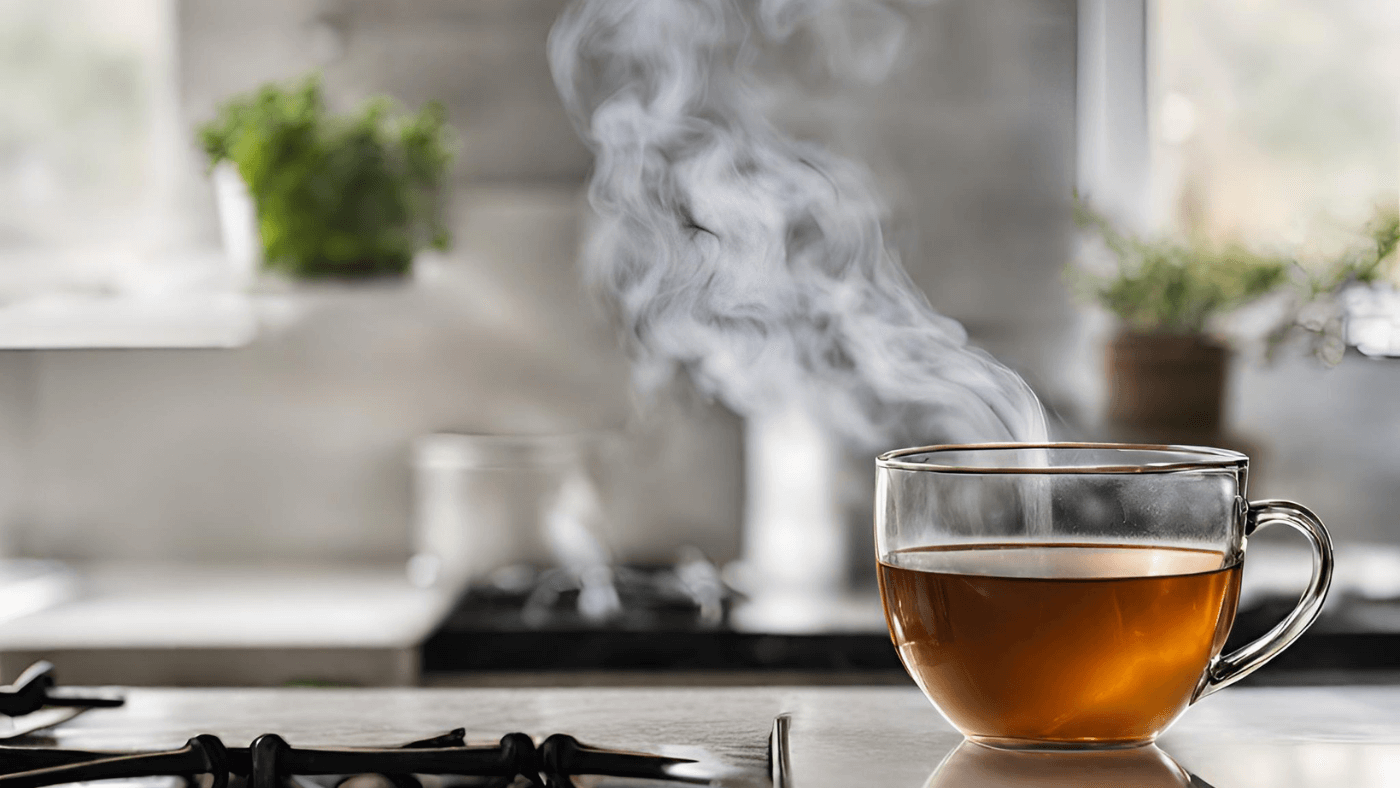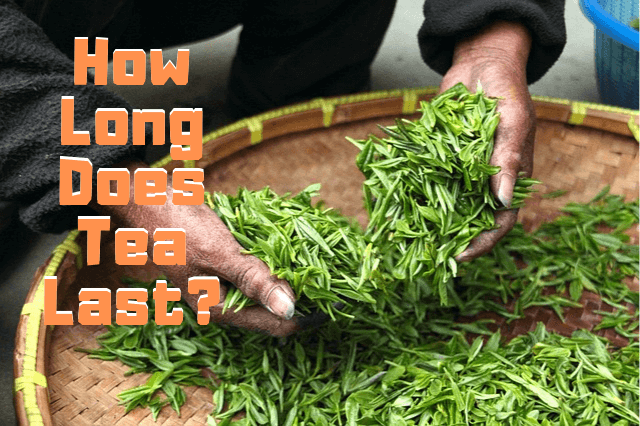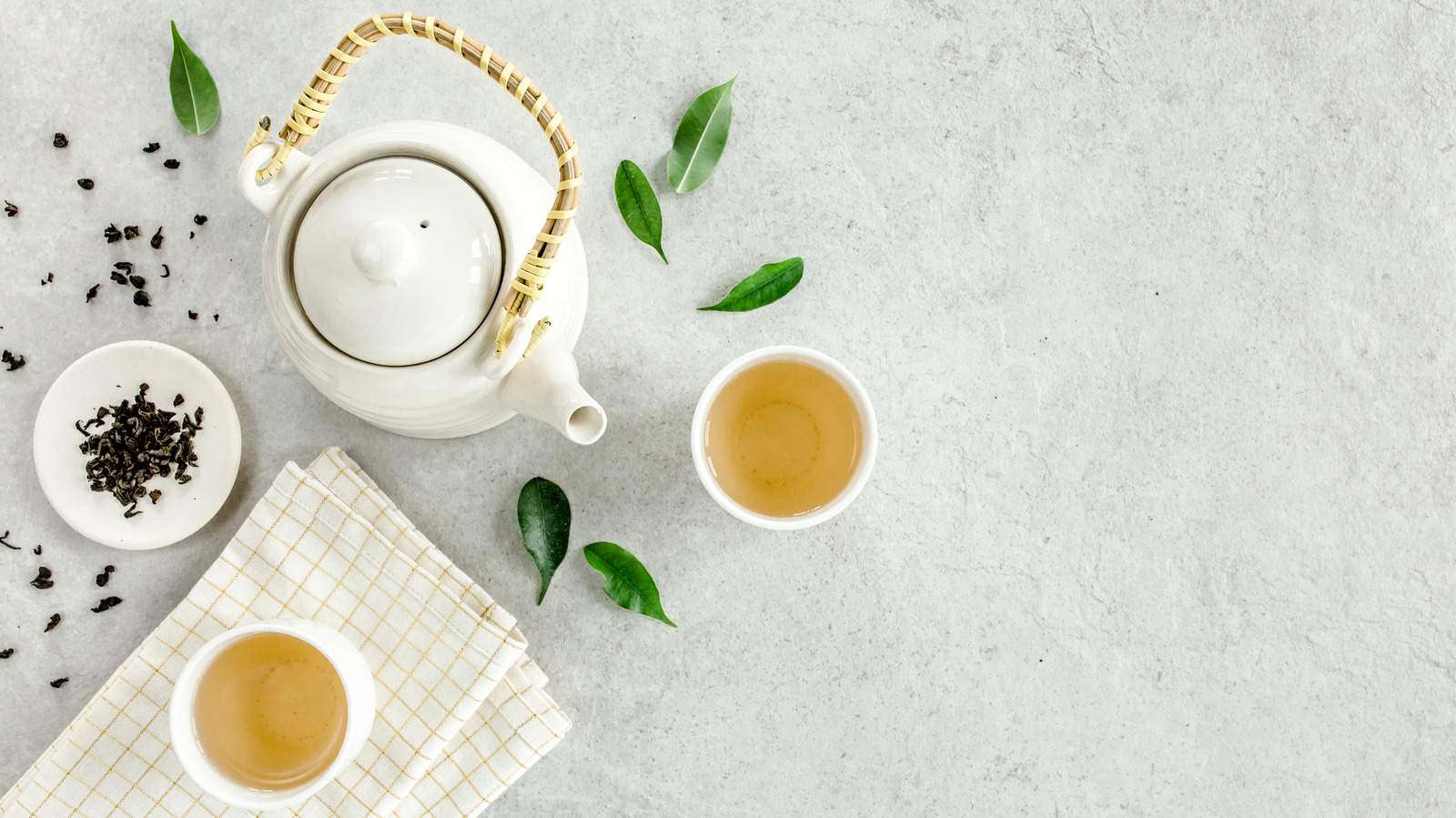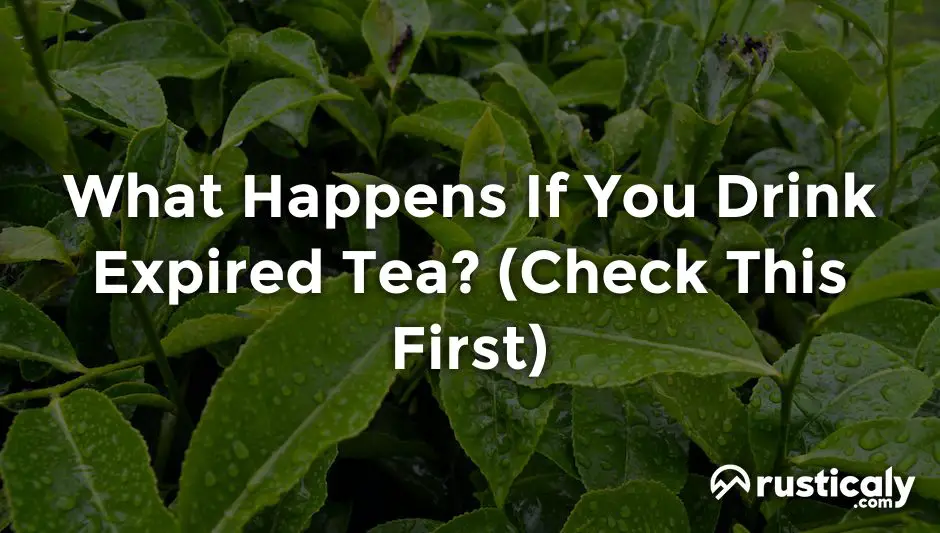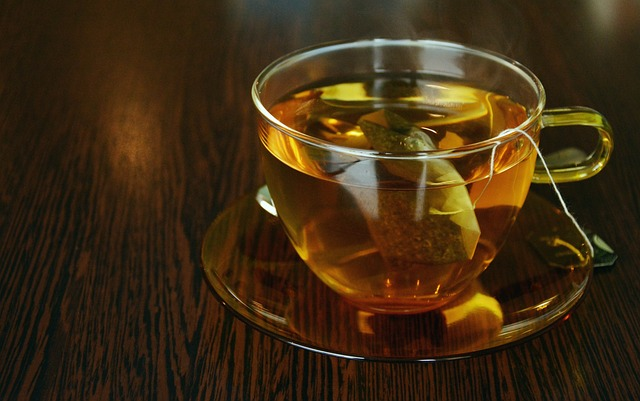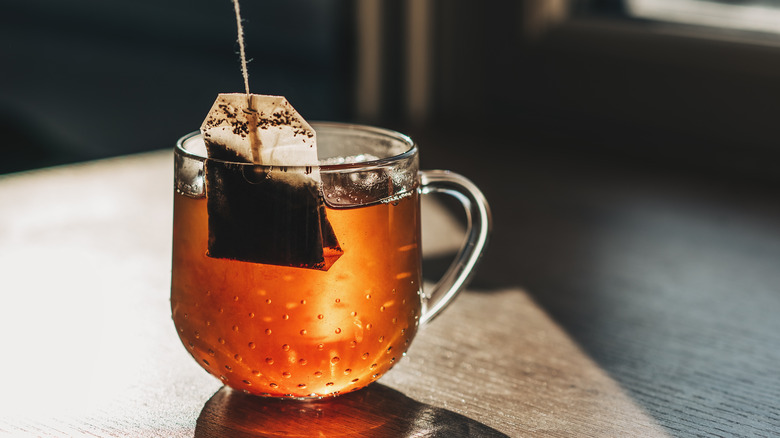Can You Drink Expired Green Tea

Imagine a quiet morning, sunlight streaming through your window, the aroma of freshly brewed green tea filling the air. You reach for your favorite box, only to notice the dreaded "Best By" date staring back at you. A wave of hesitation washes over you. Is it still safe to drink? Will it taste the same? The question lingers: Can you drink expired green tea?
This article explores the truth behind expired green tea, separating myth from reality. We'll delve into what those dates actually mean, potential risks, and how to assess if your tea is still good to enjoy. Understanding the nuances of tea storage and degradation will empower you to make informed decisions about your favorite beverage, minimizing waste and maximizing enjoyment.
Understanding Expiration Dates: More Than Just a Deadline
Expiration dates, or "Best By" dates, on food and beverage products are often misunderstood. These dates aren't necessarily indicators of safety, but rather a manufacturer's estimation of when the product will be at its peak quality, flavor, and nutritional value. The USDA (United States Department of Agriculture) clarifies that these dates are primarily about quality, not safety.
When it comes to green tea, the "Best By" date mainly reflects the anticipated freshness and potency of the tea's flavor and aroma. Over time, green tea can lose some of its distinctive characteristics, becoming less vibrant and flavorful.
What Happens to Green Tea Over Time?
Green tea is particularly susceptible to degradation from exposure to air, light, moisture, and heat. These elements can accelerate oxidation, a chemical process that alters the tea's compounds, leading to changes in taste, color, and aroma.
Specifically, the catechins in green tea, which are responsible for many of its health benefits and characteristic flavor, can degrade over time. The tea might develop a stale or musty flavor as volatile oils dissipate.
Factors Influencing Green Tea's Shelf Life
Several factors affect how long green tea retains its quality. These include:
Storage Conditions: Proper storage is paramount. Green tea should be stored in an airtight container, away from direct sunlight, moisture, and strong odors.
Type of Tea: Different types of green tea have varying shelf lives. Higher-quality teas, like gyokuro or matcha, tend to be more delicate and may degrade faster than lower-grade varieties.
Form of Tea: Loose-leaf tea generally retains its quality longer than tea bags, as the larger leaves have less surface area exposed to air and moisture.
Packaging: Vacuum-sealed packaging and nitrogen flushing can significantly extend the shelf life of green tea by minimizing exposure to oxygen.
Is It Safe to Drink Expired Green Tea?
Generally, drinking green tea past its "Best By" date is not inherently dangerous. Unlike some foods that can harbor harmful bacteria when expired, dried green tea is typically low-risk from a food safety perspective.
However, there are caveats. The tea might have lost some of its flavor, aroma, and potential health benefits. In rare cases, if the tea has been improperly stored and exposed to moisture, mold growth could occur, making it unsafe to consume.
How to Tell if Green Tea Has Gone Bad
Before brewing that seemingly "expired" green tea, conduct a thorough sensory inspection.
Look: Check for any signs of mold or discoloration. Discard the tea if you notice any unusual spots or growth.
Smell: Sniff the tea. Fresh green tea has a grassy, vegetal aroma. If it smells stale, musty, or otherwise unpleasant, it's likely past its prime.
Taste: If the tea looks and smells okay, brew a small cup and taste it. If the flavor is significantly diminished or tastes off, it's best to discard the tea.
Maximizing the Shelf Life of Your Green Tea
Proper storage is key to preserving the quality of your green tea. Consider these tips:
Airtight Container: Transfer loose-leaf tea or tea bags to an airtight container to protect them from air and moisture.
Cool, Dark Place: Store the container in a cool, dark place, away from direct sunlight and heat sources. A pantry or cupboard is ideal.
Avoid Strong Odors: Keep tea away from strong-smelling foods or spices, as it can easily absorb odors.
Desiccant Packets: Consider adding a desiccant packet to the container to absorb any excess moisture.
What to Do With Old Green Tea
Even if your green tea is no longer ideal for drinking, there are still ways to put it to good use. Don't just throw it away!
Gardening: Used tea leaves can be added to compost or used as a natural fertilizer for acid-loving plants.
Deodorizing: Dried tea leaves can be placed in shoes, refrigerators, or other areas to absorb odors.
Crafts: Tea-stained paper can be used for creating antique-looking documents or artwork.
The Bottom Line
Drinking "expired" green tea is generally safe, but the quality may be compromised. Use your senses to assess the tea's condition before brewing it. Proper storage can significantly extend its shelf life.
Ultimately, the decision to drink or discard expired green tea is a personal one. By understanding the factors that affect its quality and knowing how to assess its condition, you can make informed choices and enjoy your tea with confidence.
So, the next time you encounter that "Best By" date on your green tea, don't panic! Take a moment to assess its condition, and perhaps you'll discover that it's still perfectly enjoyable. Cheers to mindful tea drinking!

